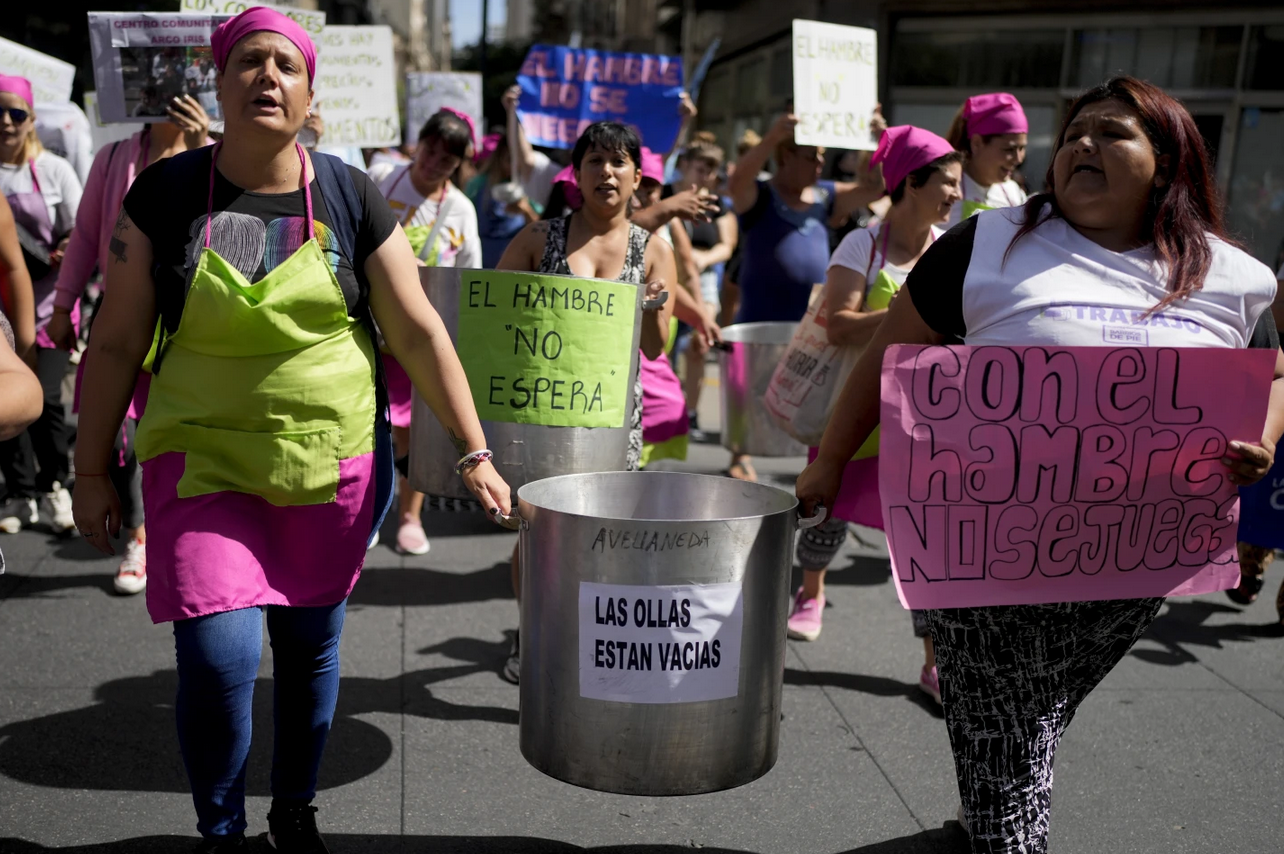
Javier Miley's government is facing harsh criticism and a growing political crisis in Argentina due to the non-distribution of food items allocated to community kitchens and popular restaurants. Since the beginning of his term, last December, nearly 5,000 tons of food purchased by the previous government have remained stored in state warehouses without being distributed to communities in need.
Social and religious organizations, which run kitchens and cafeterias across the country, deplore the absence of food transfers since December. According to information from El Destape, the current government has not made new food purchases since taking power, halting the distribution of basic supplies to millions of Argentines.
The Ministry of Human Capital, led by Sandra Petofilo, came under heavy criticism after discovering that more than 5 million kilos of food remained in warehouses, with many products approaching their expiration date. Among the stored foods are oil, flour, powdered milk and other staples of the basic diet of Argentina's most vulnerable population.
The situation led to the intervention of the judiciary. Federal Judge Sebastian Casanello ordered the immediate distribution of food stored at the warehouses of Villa Martelli, in Buenos Aires, and Tavi Viejo, in Tucuman. The decision came after a series of complaints led by social leader Juan Grabois, who accused the government of negligence and mismanagement.
However, Casa Rosada announced that it would appeal the court's decision, arguing that the stored food is intended for emergencies or disasters and that many of those eating the food are “ghosts.” This position has been criticized by social organizations, which say that the government is using outdated data to justify under-distribution.
The food distribution crisis is occurring in the context of a deep economic crisis in Argentina, where poverty has reached alarming levels. A study conducted by the Argentine Catholic University revealed that 57.4% of the population lives below the poverty line, affecting 27 million people. The annual inflation rate reached about 289% in April, exacerbating food insecurity.
Protests intensified in Buenos Aires and other cities, with social organizations demanding immediate delivery of food. “No more hunger, deliver food” and “Take back food now” were the slogans printed on the banners of the protesters, who are pressuring the government to fulfill its duty of social assistance.
In response to complaints, the government announced a protocol for the immediate delivery of food as it approaches its expiration date. However, Petofilo's administration remains under pressure, especially after the dismissal of Social Secretary Pablo de la Torre, who is accused of withholding 5 million kilograms of food. The minister also promised to investigate those responsible for mismanagement of stocks.

“Proud explorer. Freelance social media expert. Problem solver. Gamer.”






